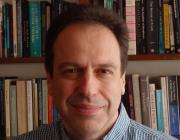Abstract:
In this chapter I investigate the prospects of integrated history and philosophy of science, by examining how philosophical issues raised by “hidden entities”, entities that are not accessible to unmediated observation, can enrich the historical investigation of their careers. Conversely, I suggest that the history of those entities has important lessons to teach to the philosophy of science. Hidden entities have played a crucial role in the development of the natural sciences. Despite their centrality to past scientific practice, however, several of them (e.g., phlogiston, caloric, and the ether) turned out to be fictitious. For this reason, they have figured prominently in recent debates on scientific realism. The issues I explore in this paper are entangled with those debates. I argue that our understanding of hidden entities and their role in experimental practice can be enhanced by adopting an integrated historical-cum-philosophical approach. On the one hand, philosophical reflection on the reality of those entities has a lot to gain by examining historically how they were ntroduced and investigated. On the other hand, the historical reconstruction of the careers of those entities may profit from philosophical reflection on their existence.
Publisher's Version

